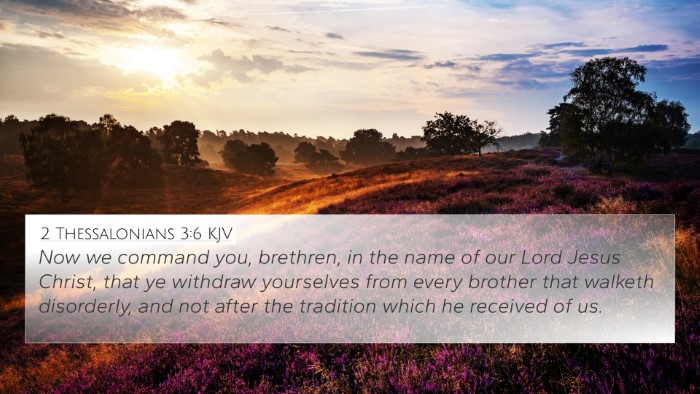Understanding 2 Corinthians 2:7
Verse: 2 Corinthians 2:7 - "So that, on the contrary, you should rather forgive and comfort him, lest perhaps such a one be swallowed up with too much sorrow."
Context Overview
This verse is a part of Apostle Paul’s letter to the Corinthians, where he addresses the need for forgiveness and restoration in the church. The context involves an individual who had sinned and was facing ramifications from the church community. Paul encourages the Corinthians to show love and compassion to that individual.
Meaning and Insights
The verse highlights significant themes of forgiveness, compassion, and the importance of restoration, emphasizing that the church should be a place of healing.
Key Themes
- Forgiveness: Paul emphasizes that forgiveness is essential for healing, showcasing the Christian principle of extending grace to those who have erred.
- Restoration: The call to ‘comfort him’ indicates an effort to restore the individual rather than punish them, aligning with Jesus' teachings on reconciliation.
- Empathy: There is a deep understanding of human emotions, as Paul recognizes the danger of overwhelming sorrow in the individual who has sinned.
- Community Responsibility: The passage reflects on the collective responsibility of the church community to support its members, reinforcing unity and love.
Public Domain Commentary Insights
Insights from various commentators provide depth to our understanding of this verse:
Matthew Henry:
Henry points out that the essence of Christian love transcends judgment, suggesting that the church should focus on restoring rather than condemning. He emphasizes that forgiveness should be abundant to prevent the burden of sorrow from overwhelming the penitent sinner.
Albert Barnes:
Barnes notes that the response to sin should include both forgiveness and comfort to the sinner. He suggests that showing mercy is crucial to prevent despair, indicating that a restoration approach is vital for a healthy community.
Adam Clarke:
Clarke emphasizes the importance of reconciliation, urging believers to forgive promptly and restore relationships to avoid driving individuals away in their times of weakness. His commentary encourages the community to act with love and decisiveness.
Bible Cross-References
This verse connects with various other scriptures that enhance its meaning:
- Matthew 6:14-15: Discusses the necessity of forgiving others to receive forgiveness.
- Galatians 6:1: Advises believers to restore those who have fallen gently.
- Colossians 3:13: Encourages forgiveness as the Lord forgave us.
- James 5:19-20: Speaks on bringing back those who wander from the truth.
- Luke 17:3-4: Jesus instructs disciples to forgive repeatedly when wronged.
- 1 John 1:9: Assures that confession leads to forgiveness from God.
- Ephesians 4:32: Calls believers to be kind and compassionate, forgiving as they are forgiven.
Thematic Connections
This verse serves as a crucial link in the broader thematic context of forgiveness in the Bible. It aligns with numerous teachings of Jesus regarding compassion, love, and the necessity of reconciliation:
- Forgiveness in the Gospel: The message of forgiveness is central to the Gospel, making this verse an essential part of understanding Christian doctrine.
- Restoration of Relationships: Many Biblical texts emphasize the importance of mending broken relationships, illustrating the transformative power of grace.
- The Role of the Church: This verse exemplifies the church’s role in providing support and community for healing and restoration.
Conclusion
2 Corinthians 2:7 serves as a reminder of the power of forgiveness within the Christian community. It underscores the responsibility of believers to act with grace and compassion, ensuring that no one is lost to despair. Through the insights of commentators and connections with other scriptures, this verse profoundly shapes our understanding of the need for love and support among believers.





















